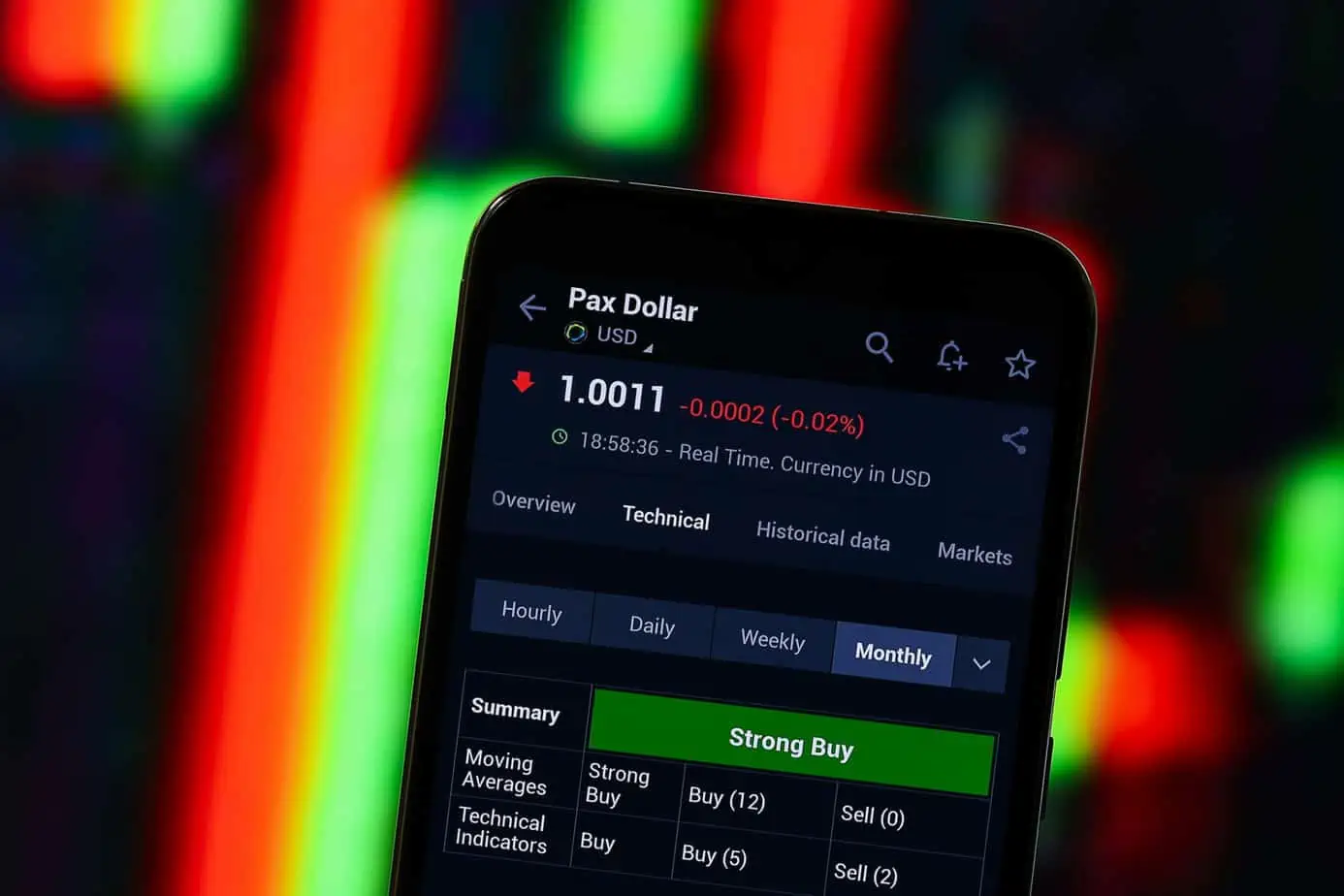The Crypto industry has drastically grown over the years. But a vast majority of people are still reluctant to invest in this market due to extreme volatility. Many investors have lost millions of dollars due to price fluctuation. In this situation, PAX Gold has appeared as a reasonable solution to the problem.
What is PAX Gold?
Over the years, Gold has proved to be a secure asset. Most investors consider it as an option to fight inflation. But it’s difficult enough to store and secure the physical gold. PAX Gold aims to solve this problem by making digital gold easily accessible to everyone. PAX Gold is a gold-backed stablecoin that enables users to buy partial shares of Gold.
It means the retail investors can also invest their money in this secure asset. PAX Gold token holders can easily exchange their crypto tokens with real gold. Each PAXG token has an equivalent value of 1 troy fine ounce of gold.
The token holders can also use these tokens to trade other cryptocurrencies on different crypto exchanges. Similarly, they can convert PAXG tokens into their desired fiat currencies. Like other stablecoins, the value of PAXG is tied to the real-time market value of physical gold.
Paxos Trust Company issues PAXG tokens depending on the physical gold reserves they have in different vaults. Paxos team regularly publishes the reports of a third-party auditing firm on its website to satisfy the investors that it holds an equal amount of physical gold in different vaults. The New York State Department of Financial Services also regulates the reserves held by this organization.
PAXG has a team of experienced developers that regularly monitor the network’s code to identify potential bugs. The interesting thing about this project is that the Paxos team separately holds the investors’ assets to avoid financial issues like bankruptcy.
PAX Gold Brief History
PAX Gold is a startup introduced by Rich Teo, a former employee of Cedar Hill Capital Partners, and Charles Cascarilla, a former analyst at Goldman Sachs in 2012. Before the launch of PAX Gold, Paxos introduced a USD-backed stablecoin called PAX Dollar (USDP).
After the successful adoption of USDP, the Paxos team went on to introduce the gold-backed stablecoin (PAXG) in 2019. USDP and PAXG share several features. For instance, both the tokens are backed by physical assets held in regulated accounts/vaults. Similarly, the auditing reports of these tokens are regularly published on Paxos’s website.
Paxos team raised around $500 million from renowned investors like Mithril Partners, OakHC, and PayPal Ventures.
Key Features of PAX Gold
Easily Accessible – PAX Gold enables everyone to buy physical gold no matter what’s the size of their investment. The best part is that the users can trade this asset 24/7.
Redeemable – PAX Gold has a network of physical gold retailers who can provide physical gold in exchange for PAXG tokens. The users can even redeem their tokens at real-time market prices if they can’t access a gold retailer.
Low Fees – The users can create/redeem PAGX tokens by paying 0.03-1% of the transaction amount as a transaction fee. The users can also enjoy a low transaction fee on Ethereum when transferring funds to one another.
Trusted – As it’s mentioned, the New York State Department of Financial Services regulates the assets of Paxos Trust Company. Furthermore, the nationally ranking auditors update the reports about the company’s reserves on a monthly basis.
Flexible – PAXG token holders can convert their tokens to fiat currencies with just a few clicks. They can also trade other cryptocurrencies using these gold-backed tokens.
Peace of Mind – The price of PAXG is tied to the real-time market value of physical gold. So, the investors don’t need to worry about the volatility of the crypto market.
Bitcoin Vs PAX Gold
Bitcoin is often referred to as digital gold but it’s not true because Bitcoin is a highly volatile digital asset. Whereas PAX Gold is backed by physical gold.
Bitcoin is only referred to as digital gold because it shares many economic similarities with physical gold. Both the assets are supply-limited, deflationary, and stores of value.
On the other hand, PAX Gold is a gold-backed digital asset that enables users to buy small shares of gold without having to worry about security and transportation.
PAX Gold Vs Gold ETFs
Gold ETFs are supported by a majority of brokers. Investors can get safe and easy access to gold using these ETFs. The interesting part is that Gold ETFs have a daily trading volume of around $112 billion. The only problem with the Gold ETFs is that they don’t provide actual ownership of gold.
These are just digital contracts that have their value tied to the physical gold. On the other hand, PAXG provides actual ownership of physical gold while offering the same price exposure.
How Does PAX Gold Work?
PAXG is an ERC-20 token backed by physical gold. The users can create or redeem PAXG tokens for a 0.02% transaction fee. The users need to complete the KYC verification processing before accessing different features of the network.
Paxos network prevents potential risks of fraud and money laundering by incorporating third-party analytical tools.
PAXG Tokenomics
PAXG is the native token of this platform. Each PAXG token’s value is equal to 1 troy ounce of fine gold. With a circulating supply of 339,687 tokens, it has a market cap of $606 million. It ranks among the top 100 cryptocurrencies in terms of market cap.
Conclusion
PAX Gold is a unique kind of stablecoin backed by physical gold. Paxos Trust Company maintains an equal amount of physical gold reserves depending on the PAXG tokens issued. The users can exchange their PAXG tokens for physical gold quite easily. If you need more information about PAX Gold, feel free to contact us.

